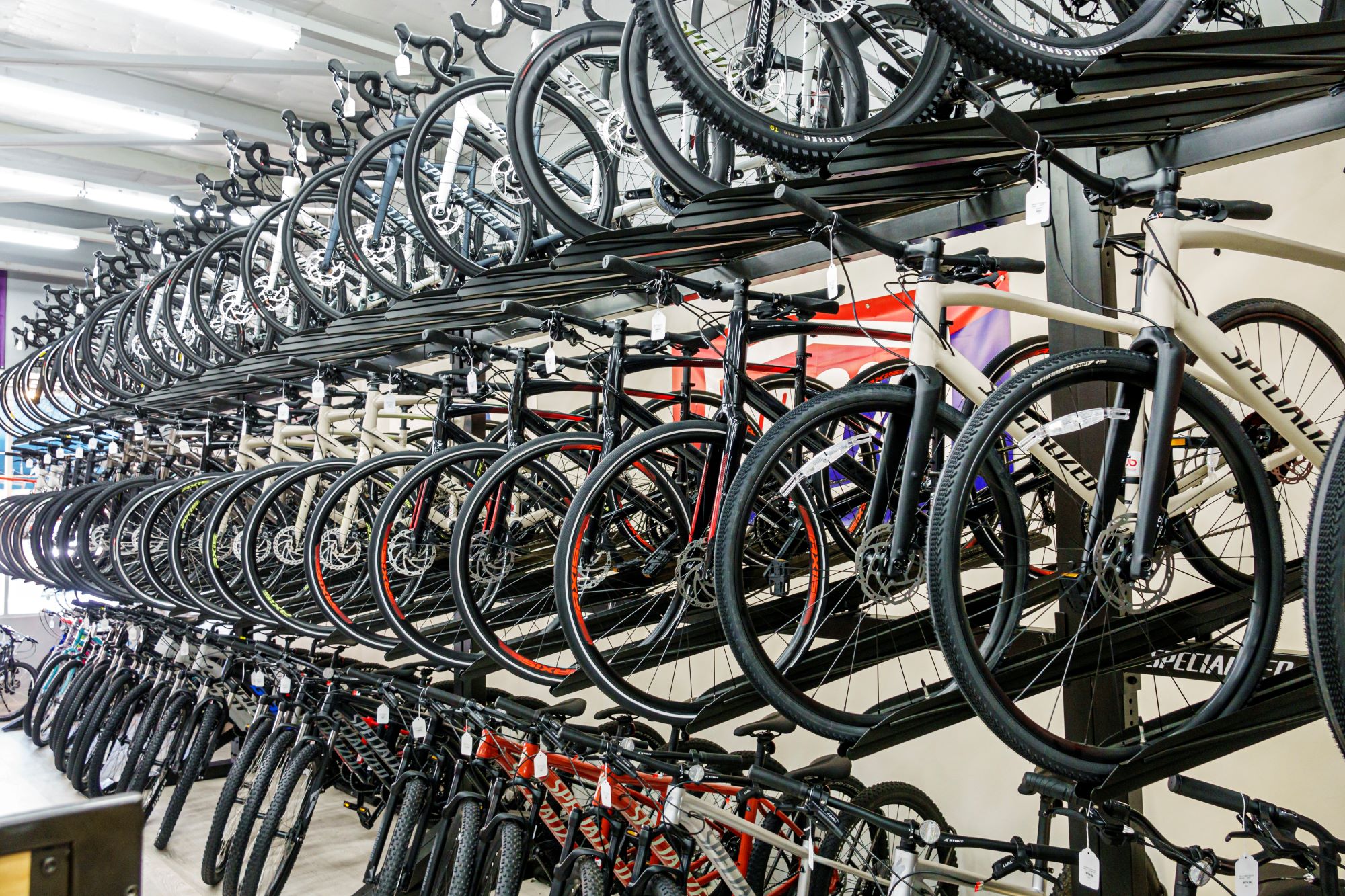Undercover Mechanic: Contrary to popular belief, the bike industry is not collapsing - but disinformation is rife
The overstocking amid the Covid spike is problematic, but some businesses are thriving, argues our insider


The latest race content, interviews, features, reviews and expert buying guides, direct to your inbox!
You are now subscribed
Your newsletter sign-up was successful
“The bike industry is collapsing!” is probably the impression you’d come away with, if you believed everything you heard on the internet. However, a little like Chicken Licken (who, in the popular children’s folk tale, believed the sky was falling down after an acorn fell on his head), you’d be believing something of an over exaggeration. Interestingly, most of these over-exaggerations appear to come from individuals who don’t actually work in the cycling industry.

Cycling Weekly's Undercover Mechanic will be publishing his thoughts on the state of the industry once a month. He's been working with bikes for over two decades, offering servicing on models from some of cycling's best (and worst) marques. You'll find him at all major trade shows and events, just don't expect him to make himself known.
What does worry me is that some of this content - often found within sensationalised videos designed to win the YouTube algorithm - may have the power to self-perpetuate. A little like the toilet paper hoarding during the pandemic, when every roll sold out, for no apparent reason beyond fear-mongering.
Cycling has always been rife with opinion, you only have to listen to any café stop conversation to know this: inner tubes vs tubeless, aero vs endurance, road vs gravel. Essentially, our sport is made up of a myriad of passionate tribes, facilitated the uber specialisation of bikes and kit. There’s nothing wrong with this, it’s one of the beautiful things about our hobby. The problem comes where loyalty to the tribe - and its narrative - overpowers common sense.
Within the workshop, we often see passion overcome common sense in the shape of blind brand loyalty, the customer simply won’t accept that an issue has been caused by bad design, because [insert name of brand] has always served them well in the past.
This feast of opinion and famine of knowledge isn’t a new thing. You’ve only got to think back to the weird and wonderful homespun training methods and nutritional interventions of the pre-internet days to see this. Who - for example - can forget the old notion of putting cabbage leaves under your cycling cap to cool down?
So, what’s really going on with the industry?
So, what’s really going on with the industry? Covid created a bubble, which some companies thought would last forever. This resulted in massive overstocking, in a saturated market. Yes, many brands have suffered - or indeed, collapsed - as a result. As outlined in Cycling Weekly’s recent feature on the current state of the industry, brands that were already stretched, and larger entities carrying third-party stock, were worst affected. Others, expect to see stabilisation soon.
Any of us that have been in the industry since the 80s will have seen versions of this several times before. We often have these little spikes and then over corrections before it settles back down again. Unfortunately, in this case, the Covid spike was global, and every man, woman and their dog has a platform on which to shout about it. However, despite the collapse of several high profile businesses, my experience is that cycling has never been more popular, and a high proportion of the Covid newbies have stuck with it.
The latest race content, interviews, features, reviews and expert buying guides, direct to your inbox!
For the average cyclist, finding a definitive answer to almost any question has become very difficult. As an example, we’re often asked “should I go tubeless?”. The internet throws up 100 different responses, whereas the true answer is unique to the rider in question’s specific requirements.
I found it interesting to learn recently that they have started teaching primary school children ways to filter out disinformation found online; I would wager that this is a skill most adults could do with acquiring. My advice would be to always consider a few simple things.
Firstly, understand the expertise and experience of the source of the information, and particularly look for evidence-based arguments, rather than anecdotal. Any piece of advice that starts with the words “my mate reckons…” should probably be taken with a pinch of salt.
I would also always consider any bias both from the source of the information and within yourself. Research papers, for example, may be funded by an interested party. And we see confirmation bias regularly when it comes to customer purchases - no one wants to believe they paid five figures for the wrong bike.
Bear in mind that a solution that’s perfect for one person may not be right for you. We’re all individuals with specific levels of flexibility, proportions and riding requirements. A classic example of this is the mantis hand position in time trailing. It worked well for a handful of riders, but has since been copied to a ludicrous extent.
And just like any good detective or journalist, corroborate any opinion with multiple sources. If lots of people with no connection to each other are all saying the same thing, then there’s probably some validity to it.
One thing I can confidently say all cyclists will agree on, is that there is no better feeling than rolling down a country lane with blue skies above and the rain jacket left at home. And, contrary to fearmongering opinion, this weekend a lot of cyclists will be doing exactly that.

Cycling Weekly's Undercover Mechanic will be publishing his thoughts on the state of the industry once a month. He's been working with bikes for over two decades, offering servicing on models from some of cycling's best (and worst) marques. You'll find him at all major trade shows and events, just don't expect him to make himself known.